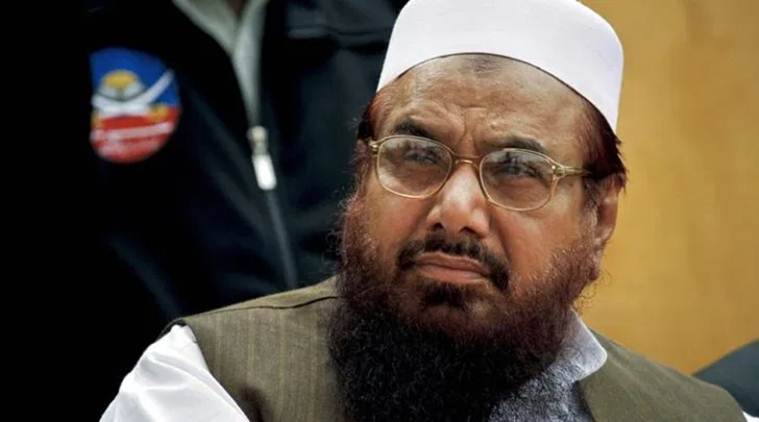 Pakistan court convicted Mumbai 26/11 terror attack mastermind and LeT chief and JuD founder Hafiz Saeed in two terror-financing cases. (file)
Pakistan court convicted Mumbai 26/11 terror attack mastermind and LeT chief and JuD founder Hafiz Saeed in two terror-financing cases. (file)
A day after a Lahore anti-terrorism court convicted Mumbai 26/11 terror attack mastermind and Laskhar-e-Taiba (LeT) chief and Jamat-ud-Dawa(JuD) founder Hafiz Saeed in two terror-financing cases, a cautious New Delhi said that efficacy of Islamabad’s decision remains to be seen, as it came just before the Financial Action Task Force’s (FATF) session from February 16 to 21.
Ahead of the six-day session of FATF, the Paris-based global watchdog on financial matters, beginning on Sunday to decide on Pakistan’s fate on blacklisting, Saaed has been convicted and sentenced to prison for five-and-a-half years and slapped a fine of Rs 15,000 in each case.
A source in the government said it is part of a “long-pending international obligation of Pakistan to put an end to support for terrorism”. “The decision has been made on the eve of FATF Plenary meeting, which has to be noted. Hence, the efficacy of this decision remains to be seen,” a source said, elaborating on the government’s assessment of the action.
Sources said it is also to be seen whether Pakistan would take action against all other terrorist entities and individuals operating from territories under its control.
Editorial: A good first step
India has been pressing Pakistan to take action against all those involved in cross-border terror attacks, including Mumbai and Pathankot attacks.
It has to be seen whether Pakistan brings perpetrators of cross border terrorist attacks, including in Mumbai and Pathankot to justice expeditiously, sources said.
Saeed, who in November 2018 was set free from a 300-day house arrest, is considered the mastermind and planner of the Mumbai attack in November 2008, which killed 166 people.
The Lahore court ordered that sentences of both cases will run concurrently. The court also granted Saeed the benefit of Section 382-B of the Code of Criminal Procedure (reduction of period of sentence of imprisonment). Malik Zafar Iqbal, secretary of Al-Anfaal Trust, has also been convicted in the same cases and awarded similar punishment.
The two were convicted under Pakistan’s Anti-Terrorism Act Section 11-F(2) — pertaining to membership, support and meetings relating to a proscribed organisation — and 11-N (punishment under Sections 11-H to 11-K).
During its session from February 16 to 21, the FATF is expected to take up Pakistan’s case, as it has been on the ‘grey list’ since 2018. India’s effort will be to move it to the ‘black list’, if not stay on the grey list. Islamabad wants to get out of the grey list since it impacts the country’s global credit-rating and investor sentiment.
Last year, Pakistan was given a relief for four months as it had failed to fulfill its commitments on terrorist financing under FATF’s charter.